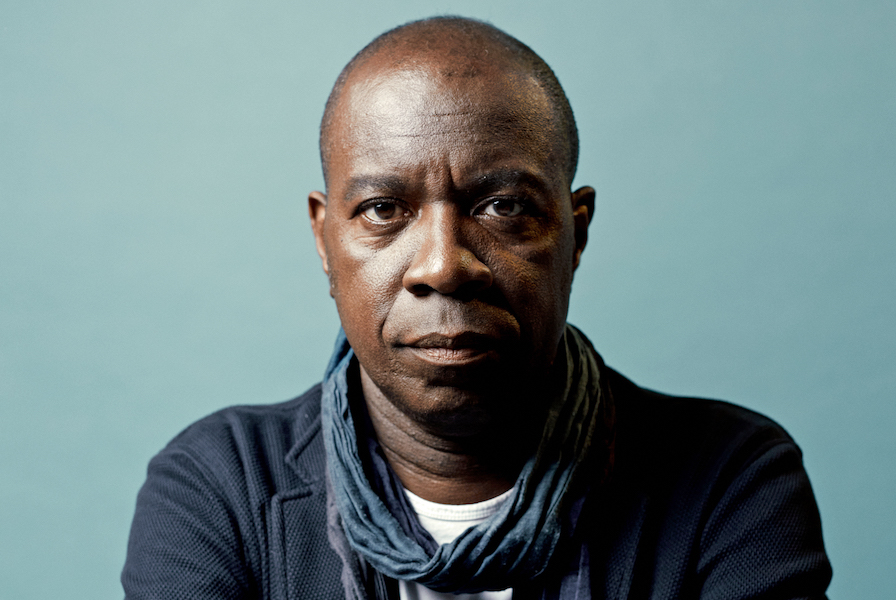BBC news presenter Clive Myrie on dodging bullets and how he escapes PTSD
During a career spanning over 30 years, BBC News presenter Clive Myrie has dodged bullets and bombs in war zones in Kosovo, Iraq, Afghanistan and, most recently, Ukraine, and reported on horrific scenes, from mass shootings in America to the front line of the Covid wards.
Today, on a Zoom call from his north London home office piled high with books, the journalist, newsreader and presenter of BBC News and Mastermind is looking relaxed, dressed down in a baby blue sweatshirt, as we meet to discuss his memoir, Everything Is Everything.
He has seen the worst of humankind on assignments at home and abroad – death, destruction and devastation, both emotional and physical. One wonders how he sleeps at night.
View this post on Instagram
“I try not to take it home with me. I’m pretty good at compartmentalising and shutting things out. But images stay with you. They’re in your head and there might be a moment of crisis and those images come back and can impair the way that you function, which is Post Traumatic Stress Disorder.
“And I haven’t had that yet. The images come back, but they don’t stop me being able to do my job or to function day to day. Could they do that at some point in the future? Maybe. I could well have PTSD, but it hasn’t manifested itself in a form that stops me being able to continue doing my work.
“When I do come back from a difficult assignment, I try to completely shut that away. I have so many other things going on in my life in terms of art, music and culture. I will go to art galleries and concerts and to jazz bars. I will try to find a way to push those images at the back of my mind.”
View this post on Instagram
Myrie, 59, has been married to Catherine, former editor of a publishing house, for 25 years. They met at the launch of a book on Swiss cheese in 1992.
“She’s interested in the journalism side of things to a degree, but she’s not obsessed with it the way I am. So when I come back, she’s more than happy to go off to an art gallery or just get out in the fresh air and experience something completely different.”
He doesn’t talk much about each traumatic assignment, preferring to turn the page, he says.
During his career he has had postings in Tokyo, Los Angeles and Washington, and reported from more than 80 countries. Did the danger of his job have a bearing on the decision to not have children?
“It wasn’t the danger of the job, just the travelling. We felt it would be selfish on children to drag them around the world. We’ve come from big families. I’m from a family of seven (children), Catherine’s from a family of five kids. We weren’t desperate for some kind of familial glue.

Clive Myrie has been with the BBC since 1987 when he joined as a trainee
“You get to the point where it’s much more difficult to have a child and then you realise, do we really want that anyway?”
Race is a dominant theme throughout the book, and there is anger and incredulity about personal and professional episodes as he analyses how being black in a white-dominated society has affected his perspective.
“I reached a point where I realised that a lot of the stories that I was doing were interconnected. And they involved one race, or one religion, or one caste, or one section of a particular society trying to dominate another. It came to a head with the Ukraine in 2022.”
He had to run the book past the BBC before publication. “They went through it with a fine toothcomb. There were parts they felt might cause problems with my continuing work as an impartial journalist in the future.”
View this post on Instagram
Myrie’s parents, Lynne and Norris, are Windrush generation who came to England from Jamaica in the early 1960s and settled in Bolton. She was a teacher in Jamaica, but her qualifications weren’t recognised in Britain, so she became a seamstress who made M&S clothing and Mary Quant mini skirts.
Norris, who had been training to be a skilled shoemaker in Jamaica, ended up assembling car batteries in the local factory. They are divorced and Norris moved back to Jamaica. Neither of them would talk about the racist abuse they suffered in those early years.
“I think things have improved, things are easier now, you will be judged on your capabilities and your abilities now, much more fairly than when I started in journalism and when Trevor McDonald (one of his inspirations) started, going further back.

Sir Trevor McDonald was an inspiration
“The situation has improved a hell of a lot in terms of opportunities and access to the kinds of areas in life that you are equipped and intellectually capable of being part of, whether it is the highest levels in civic society, or in business, or journalism or wherever, we are in a much more enlightened age. But when my parents came from Jamaica to this country, it was legal for them not to be served in a pub.”
Myrie has also suffered racial hatred over the years. He’s received racist letters, emails and messages, had faeces posted to him and received a card with a gorilla on the front and the message: ‘We don’t want you on our TV screens’. In 2017, he received a death threat which investigators found to be serious.
How has he coped with the abuse?
“It used to get me angry and was upsetting. We all want to be liked, to be appreciated. To be attacked for something like the colour of your skin, that it results in bile, death threats and in extreme cases real murder (threats), is discombobulating because it’s so ridiculous. There’s nothing logical about racism.”
View this post on Instagram
He says he’s still subjected to racism from people who think there’s too much whingeing about race in what is now very different world.
“(They think) This guy’s done ok, he should be grateful that Britain gave him and his family an opportunity. No suggestion at all that I might have worked my a*** off for this. That is racism because the assumption is that it’s been given to me through some box-ticking exercise.”
Age has made him less angry, he reflects. “As I’ve got older and perhaps wiser, it’s just sad. It’s just pathetic. These people who reach for racist taunts are very sad, pathetic human beings and may be inadequate in some way themselves.”
A health scare in 2019, when a benign tumour the size of a squash ball was removed from his neck, has made him view life differently, considering opportunities which have nothing to do with the news.
“It would be a shame to go to my grave not having done all these other things that might be out there. So if a good opportunity pops up, I might give it a go.”
In recent years he’s taken on lighter roles, appearing in Have I Got News For You?, hosting Mastermind, venturing to Italy to make the BBC travelogue series Clive Myrie’s Italian Road Trip, and will be exploring the Caribbean in a similar series.
View this post on Instagram
But he’s not giving up hard news, he says, laughing at any suggestion of retirement.
“There are many sides to my personality. What most people see at 10 o’clock at night and in war zones is the serious side, but anyone who knows me knows I’m a bit of a laugh.”
Everything Is Everything: A Memoir Of Love, Hate And Hope by Clive Myrie is published by Hodder & Stoughton on September 14, priced £22.
The Press Association
Latest posts by The Press Association (see all)
- BBC to air two-part Call The Midwife Christmas special - December 23, 2024
- 6 mind sports to exercise your brain and keep you sharp - December 20, 2024
- Quiz: What classic Christmas food or drink are you? - December 20, 2024
- Leftover turkey and watercress pie - December 20, 2024
- Catherine and William choose family shot for Christmas card photograph - December 19, 2024




















